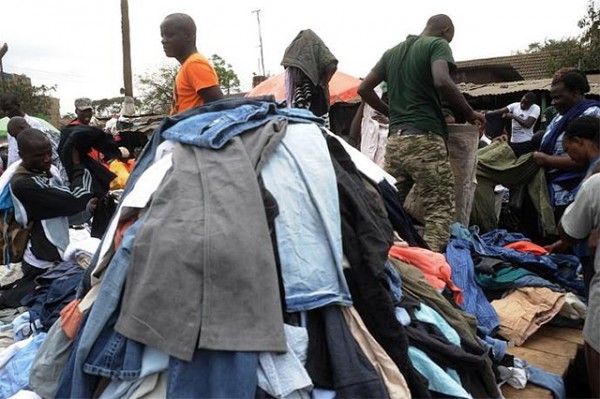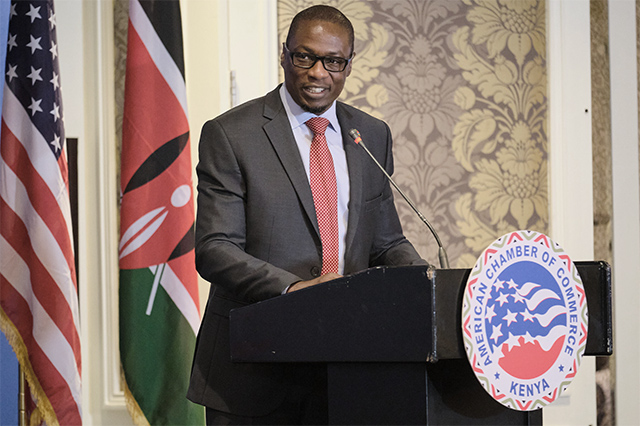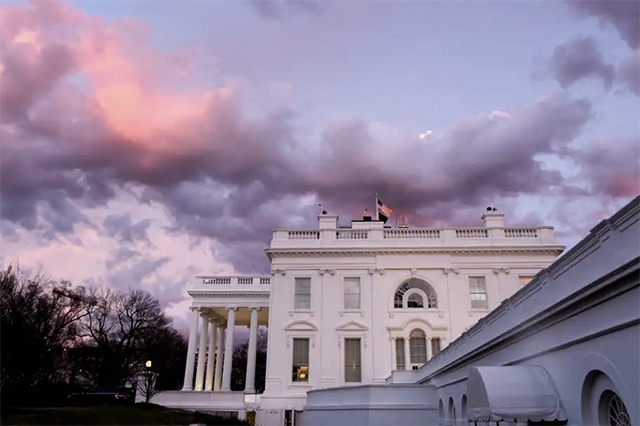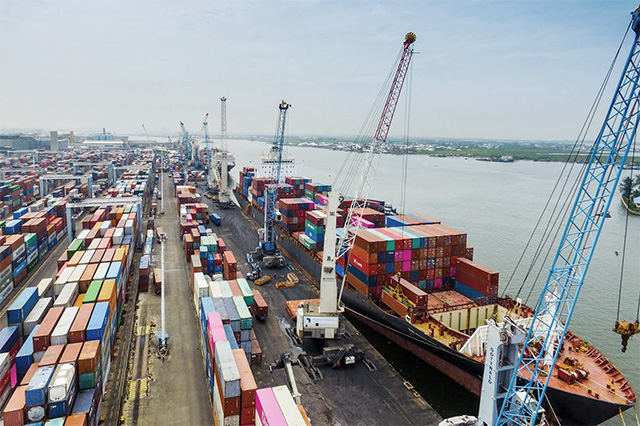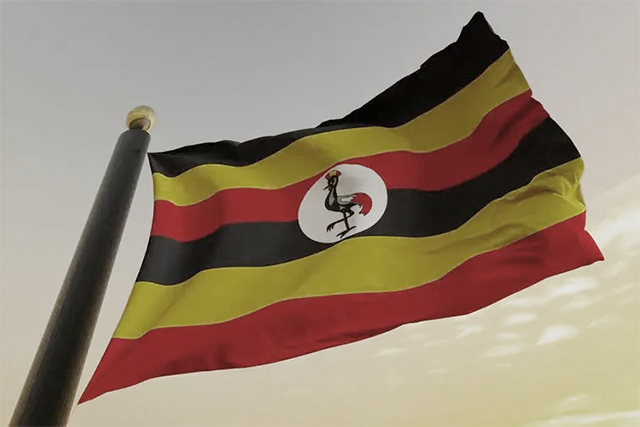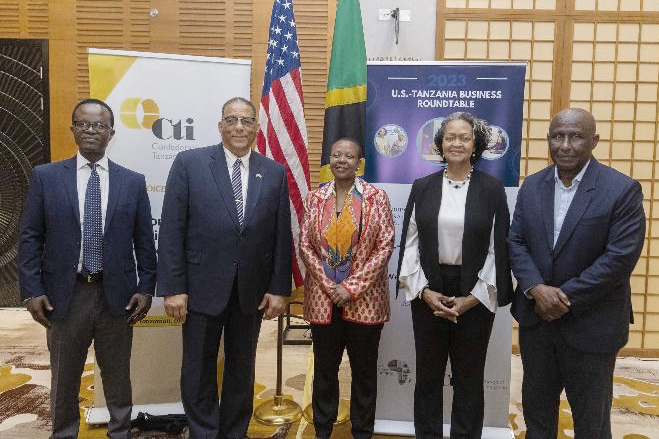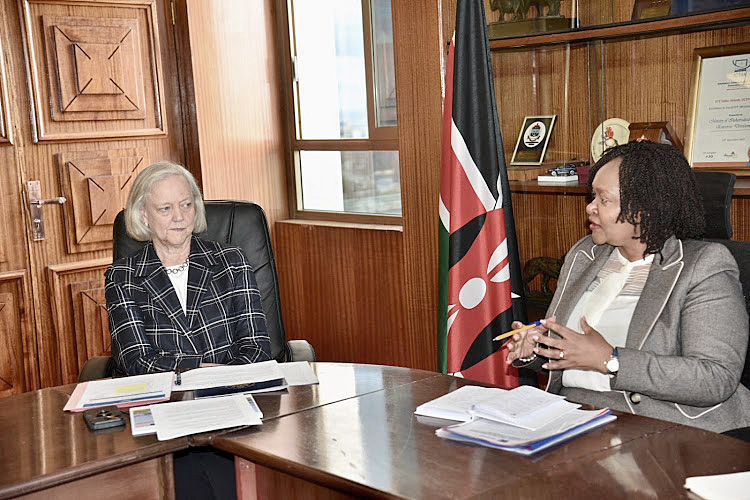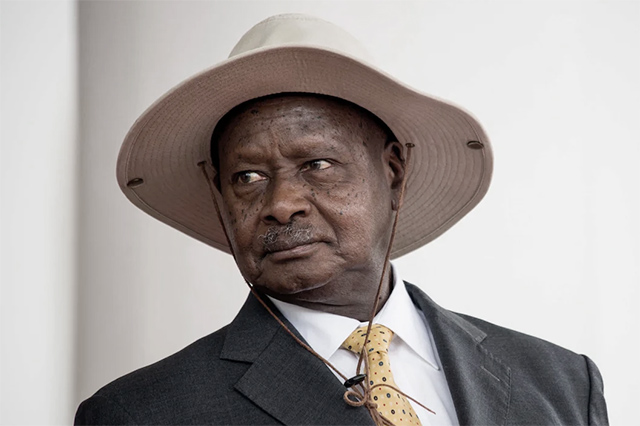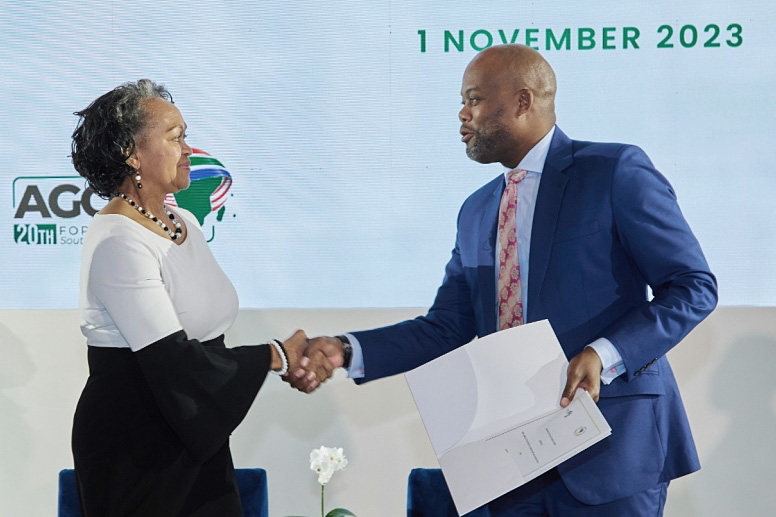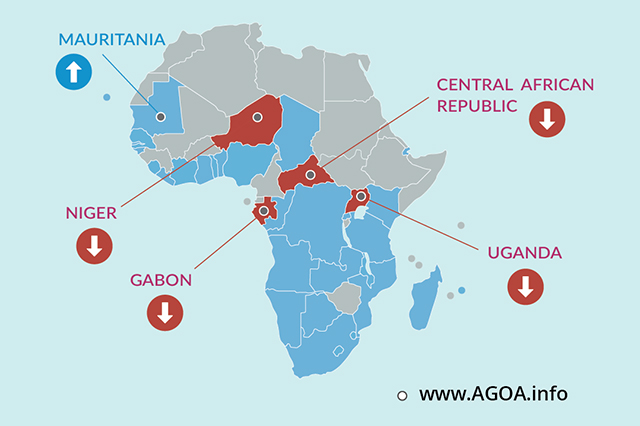EAC officials oppose US bid to review AGOA trade deal over used-clothing ban
Senior officials from Rwanda, Tanzania and Uganda argued in Washington on Thursday that their collective phase-out of used clothing (mitumba) imports should not result in any loss of benefits from a US preferential trade programme.
The representatives of the three East African Community (EAC) countries spoke in opposition to an effort by a US business association to restrict their eligibility for the trade initiative known as the African Growth and Opportunity Act (Agoa).
The Secondary Materials and Recycled Textiles Association (Smart) filed a petition with US trade authorities in March urging that the three countries, along with fellow EAC member Kenya, be deemed ineligible for Agoa's allowance of duty-free textile and apparel exports to the US market.
Lawrence Bogard, an attorney representing Smart, warned at Thursday's US government inquiry that the association's member companies would suffer major losses in jobs and revenues if the EAC ban on used-clothing imports is fully implemented.
Mr Bogard also argued that Kenya should be included among the EAC countries facing partial loss of their Agoa benefits.
The top US trade agency had announced last month that Kenya would be excused from the group of countries potentially subject to review of their Agoa eligibility.
That decision was said to be based on “recent actions Kenya has taken, including reversing tariff increases, effective July 1, 2017, and committing not to ban imports of used clothing through policy measures that are more trade-restrictive than necessary to protect human health.”
But the Smart representative suggested on Thursday that Kenya ought to be included in the Agoa eligibility review until officials in Nairobi clarify their commitments.
Smart specifically seeks confirmation that Kenya's reported imposition of minimum tariffs on containers of used goods “will not be implemented in a manner that negates the July 1 roll-back of Kenya's tariff increases,” Mr Bogard said.
Kenya would have far more to lose from suspension of its duty-free textile export privileges under Agoa than would any of the other EAC countries.
Kenya sold $394 million worth of textiles and clothing on the US market last year, compared to the total $43 million sum of Agoa trade for Rwanda, Tanzania and Uganda.
The Kenyan embassy in Washington says that 66,000 jobs in Kenya are linked to Agoa's textile-export provisions.
The opposing parties presented their comments to a panel of representatives of six US government agencies: the departments of Commerce, Labour, Treasury and State, as well as the US Agency for International Development and the Office of the US Trade Representative.
Kenya was not represented at the hearing.
'America First' policy
Looming over the three-hour session before a standing-room-only audience was the Trump administration's “America First” policy.
The US president has vowed to oppose any trade initiative that he deems injurious to American interests.
And Smart sought on Thursday to depict the EAC ban on used-clothing imports as a threat to thousands of US jobs.
The hearing chaired by Constance Hamilton of the US Trade Representative's office was contentious at times.
She and other US officials challenged the East Africans' insistence that the agreed-upon three-year phase-out of used clothing imports did not amount to a “ban.”
A member of Uganda's delegation at the hearing also insisted that Tanzania's and Uganda's doubling of levies on used-clothing imports — from $0.20 to $0.40 per kilogramme — was not a “tariff increase” but rather a “realignment.”
Ms Hamilton also pointedly asked how Rwanda's increase from $0.20 to $2.50 per kilo could be seen as consistent with the rules of the World Trade Organisation.
A Rwandan representative replied that the increase would be in effect for only one year.
Washington-based trade consultant Stephen Lande asserted that the hearing should not have been convened at all.
Taking the side of the East African representatives, Mr Lande told the panel that the US Congress intended that such official inquiries should be held only when “all other possibilities have been exhausted.”
Consultations failed
Ms Hamilton responded that prior consultations had failed to resolve the issue at hand.
She added that “Smart has the right” to petition for punitive action against countries alleged to be violating Agoa rules.
Some of the statistics presented by Smart also differed markedly from those offered by EAC representatives.
Mr Bogard put the total annual value of US used-clothing exports to the EAC countries at $124 million. A Ugandan official said the total is about $30 million.
EAC countries' representatives also disputed Smart's contention that the used-clothing action violates two of Agoa's eligibility criteria.
The 17-year-old programme requires participant countries to have achieved “elimination of barriers to US trade” or be making progress in that direction.
Agoa also stipulates that benefit-recipient countries should be moving toward a “market-based economy.”
'Market forces'
Ms Hamilton asked at one point why the EAC countries don't let “market forces” determine consumers' clothing choices.
A Ugandan official replied that market forces should be determinants but should also be “guided” when necessary.
The EAC countries decided to adopt the used clothing import phase-out as a means of encouraging development of their own textile manufacturing sectors, said Uganda Trade Minister Amelia Kayambadde, who spoke in her capacity as chair of the EAC's Council of Ministers.
““Industrialisation is a strategic pillar of EAC integration,” Ms Kayambadde said.
“The heads of state decided that textiles and footwear manufacturing is a priority.”
Growth of those sectors will likely create many more jobs in East Africa than will be lost through the shutdown of local businesses involved in the used-clothing trade, the EAC representatives argued.
Apparel manufacturing involves “a long value chain,” Ms Kayambadde noted.
She suggested that jobs would be produced all along it in the form of cotton growing, ginning, weaving, garment manufacturing, leather tanning, shoe making and retail businesses.
Asked by US panel members to provide studies showing such an outcome, EAC representatives said such analyses are being undertaken.
They meanwhile offered anecdotal responses.
'New clothing'
A Ugandan official said “Kenya has found a big, big appetite for new clothing and goods produced within the region.”
Ms Kayambadde concurred that throughout the EAC “the demand is now for new clothing.”
East Africans, she said, “want a new life. People are able to afford to buy new things.”
Mr Bogard argued on Smart's behalf that the ban on used clothing imports will be more likely to benefit Asian producers of low-cost garments than East African entrepreneurs seeking opportunities as textile manufacturers.
Loss of Agoa textile-export benefits would harm not only the EAC countries themselves but also US clothing manufacturers operating in East Africa, said Jeremy Lott, president of San Mar Corporation.
His firm based in the western US employs 4,000 Americans and hundreds of Tanzanians, Mr Lott told the panel.
San Mar manufactured more than 10 million shirts at its Tanzanian facilities last year that were subsequently exported to the US, he noted.
“An abrupt end of Agoa eligibility for Tanzania would force us to move production to China,” Mr Lott warned.
He said that members of San Mar's mostly female workforce in Tanzania are paid at rates five times the national average income.


